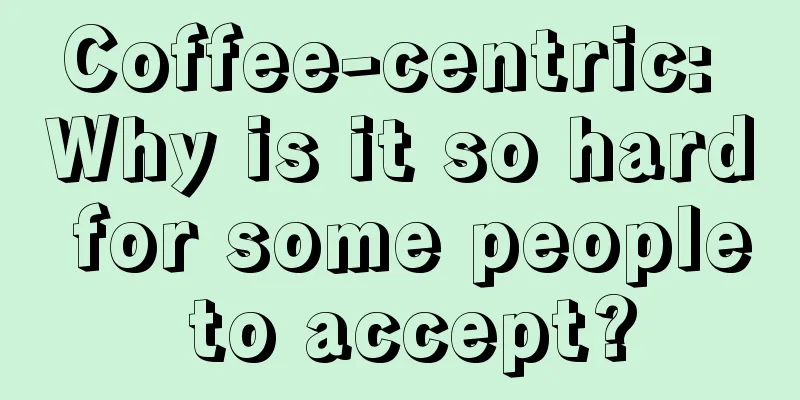Coffee-centric: Why is it so hard for some people to accept?

introductionCoffee, as a popular drink, has a wide range of fans. However, there are still some people who find it difficult to accept a coffee-centric lifestyle. This article will explore this phenomenon and analyze the reasons. Physical health problemsFor some people, the reason they struggle to embrace a coffee-centric diet is because they worry about the negative impact it can have on their health. While moderate coffee consumption can help boost alertness, increase concentration, and improve memory, excessive intake can lead to problems such as insomnia, anxiety, and indigestion. Additionally, some people may be allergic to caffeine or have other special conditions (such as high blood pressure) that require them to limit their intake. Economic pressureAlthough many people like to taste various unique coffees and are willing to pay a higher price to enjoy this delicacy, some people think that it is impractical or extravagant to invest a lot of money in buying coffee in their daily lives. They prefer to use the money for other things, such as family expenses, education or travel. Social pressureA coffee-centric lifestyle is often closely associated with coffee shop culture and social activities. However, some people may not feel comfortable or like interacting with strangers in a crowded coffee shop. They prefer to enjoy their alone time in a quiet environment or choose other forms of social activities. Personal taste preferenceEveryone has different taste preferences for food and drink. While most people like the bitterness and rich aroma of coffee, some people find the taste too pungent or overwhelming. They may prefer other types of drinks, such as tea, juice, or water. Cultural differencesThe last reason is cultural differences. In some countries and regions, tea is considered a staple drink and has a deep historical and traditional background. Therefore, coffee-centricity in these places may be met with a certain degree of resistance or rejection. People are more inclined to regard tea as a part of their daily lives and regard it as a cultural symbol. in conclusionAlthough coffee has a wide audience around the world, some people still find it difficult to accept a coffee-centered lifestyle. This may be due to health issues, economic pressure, social pressure, personal taste preferences, and cultural differences. Whether a person likes coffee or not, we should respect everyone's choice and maintain an open and inclusive attitude. |
<<: Effects of coffee on blood sugar: new insights and scientific evidence
>>: Health coffee: hidden health killer
Recommend
Well-known foreign coffee brands: leaders in global coffee culture
introduction Coffee is a popular drink worldwide,...
The art of handmade coffee making, exploring the origin and soul of coffee
Abstract: This article explores the art of handma...
Is coffee good for you?
credit: 123RF Researchers from the British Medical...
Where is the best origin of coffee beans?
Overview of global coffee bean production areas a...
Ranking of famous coffee brands: Who is the best choice?
Ranking of famous coffee brands: Who is the best ...
Analysis of the effects of coffee, in-depth exploration of the time effect and influencing factors of coffee's refreshing effect
Coffee is a widely popular drink, and its refresh...
The coffee master's milk foaming skills are truly amazing!
Coffee Master's Milk Foaming Technique Coffee...
Uncovering the True Price of Regular Coffee
Abstract: The real price of ordinary coffee varie...
Caramel coffee, explore the charm of ingredients and taste experience
Caramel coffee is a drink that combines caramel a...
Coffee Bean Roasting Temperature Exploration: Finding the Perfect Roasting Point
introduction Coffee is a must-have drink for many...
Coffee bean production: a journey from origin to delicious aroma
Coffee beans are the basic raw material for makin...
Explore the best types of coffee beans and unlock the golden secrets of the coffee world!
Coffee, as one of the most popular drinks in the ...
Imported coffee bean brand ranking
Imported coffee bean brand ranking As a popular d...
China's top coffee beans: rich aroma and infinite taste
China's top coffee beans: rich aroma and infi...
Which brand of coffee beans?
Explore the main coffee bean types and their flav...









